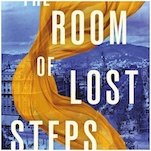Is America’s Partisan Divide Really as Harmful as the Hand-Wringers Tell Us?
The Curmudgeon on Politics
Photo by Marco Oriolesi/Unsplash
One of the most revealing comments of this political season was made on Friday, July 31, at the U.S. Capitol. House speaker Nancy Pelosi was asked at a press conference why the Democrats and Republicans were having such a hard time agreeing on the third covid-19 relief bill. She didn’t mince words.
“We don’t have shared values,” she said. “That’s just the way it is. So it’s not bickering. It’s standing our ground. We’re trying to find common ground.”
This is a very different analysis of the partisan divide that confronts the nation on nearly every issue, not just this one. The conventional wisdom of the David Brookses of the world, the “thoughtful people,” as Paul Krugman calls them, is that Americans have more that unites them than divides them. If elected officials would just stop playing games for political advantage, these hand-wringing centrists tell us, all our conflicts would shrink to respectful differences of opinion that could be handled by polite, gentlemanly debate.
But what if these pundits are wrong and Pelosi is right? What if America’s partisan divide is the result not of political gamesmanship but of a fundamental divergence in moral values? What if we disagree not only about how to create a better America but also on what a better America would look like? What if the Left sees that optimal society as a communitarian one where every citizen is responsible to every other citizen—and to evidentiary facts? What if the Right sees that optimal society as an individualistic one where each citizen is responsible only for oneself and to one’s own beliefs with as few restraints and obligations as possible?
Is it better to paper over those differences as if they don’t exist? Or is it better to acknowledge them and have a battle over what kind of nation we’re going to be? In the final sentence of the above quote, Pelosi acknowledges that we live in a democracy and we have to compromise to pass legislation. But she’s declaring that it’s going to be a compromise between two competing value systems, and she’s going to try to get as much as she can for her system.
She’s going to get as much economic relief as she can for the many, and she’s going to fight Mitch McConnell’s attempts to emphasize legal impunity and tax breaks for the few. She’s not going to pretend that this is merely a political game, and she’s not going to be blackmailed by the other side refusing to put their cards on the table. In May, her caucus passed a covid-19 relief bill that expressed their values; in early August they were still waiting for McConnell’s caucus to declare themselves.
Some kind of relief bill will eventually get passed, but Pelosi’s comment highlights a pervasive misunderstanding of American politics. Political parties are not the cause of the nation’s government division and paralysis; they are a reflection of it—and a possible solution for it. There are two starkly different visions of American society—the communitarian and individualist—and those differences would exist whether or not we had parties to articulate those visions and argue for them. At last we do.
-

-

-

-

-

-

-

-

-

-

-

-

-

-

-

-

-

-

-

-

-

-

-

-

-

-

-

-

-

-

-

-

-

-

-

-

-

-

-

-








































